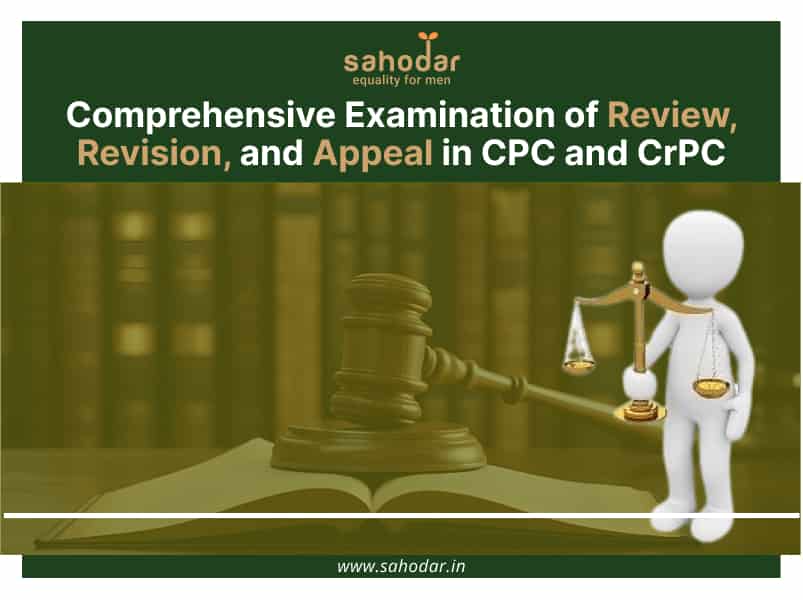In the Indian legal framework, Review, Revision, and Appeal stand as distinct recourses accessible to individuals dissatisfied with a judicial decree in both civil and criminal realms. Grasping these legal avenues, including Review, Revision, and Appeal, is essential for adeptly maneuvering the intricacies of civil and criminal litigation. This thorough examination of the CPC and CrPC illuminates the appellate procedure in India, providing invaluable perspectives for legal professionals and scholars.
Review in Civil Law
In Indian civil law, the process of review provides a legal avenue for parties to challenge the correctness of judicial orders. Governed by Section 114 of the Code of Civil Procedure, 1908, individuals who consider themselves aggrieved by a decree or order, for which no appeal has been preferred, may apply for a review to the court that issued the decree or order. The grounds for review are limited to the discovery of new and substantial evidence not previously known or producible during the original proceedings. It’s crucial to note that the scope of review does not extend to re-examination of evidence or facts considered in the original proceedings. Review proceedings aim to rectify judicial errors rather than replace appeals.
Revision in Civil Law
Revision in Indian civil law empowers superior courts to scrutinize the legality and propriety of orders passed by subordinate courts. Governed by Section 115 of the Code of Civil Procedure, 1908, the High Court can call for records of cases decided by subordinate courts under specific circumstances. Revision may be initiated if the subordinate court exceeds its jurisdiction, fails to exercise vested jurisdiction, or acts illegally or with material irregularity.
Appeal in Civil Law
Appeal serves as a vital legal remedy in Indian civil law for parties seeking to challenge judicial orders. The procedure for filing an appeal is detailed in Sections 96 to 105 of the Code of Civil Procedure, 1908. An appeal lies to the High Court from any decree passed in appeal by subordinate courts if the High Court is satisfied that the case involves a substantial question of law.
Review in Criminal Law
In Indian criminal law, the review process allows parties to challenge the validity of judicial orders. Governed by Section 397 of the Code of Criminal Procedure, 1973, individuals aggrieved by a criminal order may seek review on specified grounds. However, the scope of review is limited to the discovery of new and substantial evidence and does not permit re-examination of previously considered evidence or facts.
Revision in Criminal Law
Revision in Indian criminal law empowers superior courts to assess the legality of orders issued by subordinate courts. Governed by Sections 397 and 401 of the Code of Criminal Procedure, 1973, revision may be initiated if the order is deemed illegal or improper.
Appeal in Criminal Law
Appeal plays a significant role in Indian criminal law for challenging judicial orders. Governed by Sections 372 to 376 of the Code of Criminal Procedure, 1973, individuals have the right to appeal convictions, sentences, or orders of any Criminal Court, except in cases involving specific severe sentences such as death, transportation for life, or imprisonment for life.
In summary, Review, Revision, and Appeal represent distinct avenues within the Indian legal framework for contesting the accuracy of a judicial decision made against a party. The procedures for initiating each remedy and their respective extents of authority vary between civil and criminal law. Recognizing these distinctions and constraints is vital for effectively navigating the Indian legal landscape and pursuing fair outcomes.

